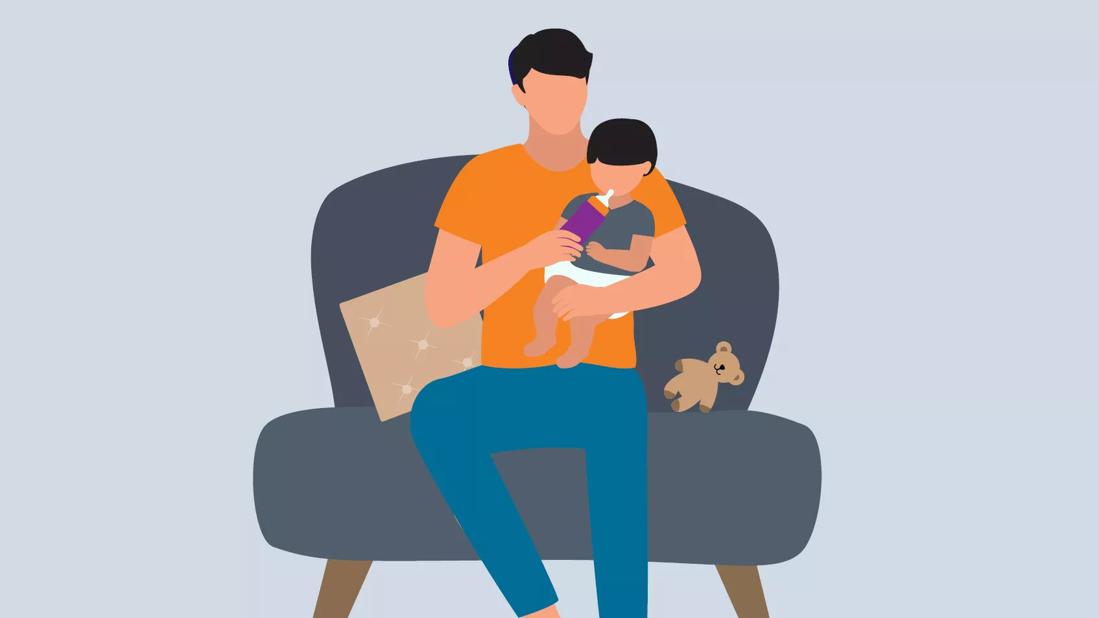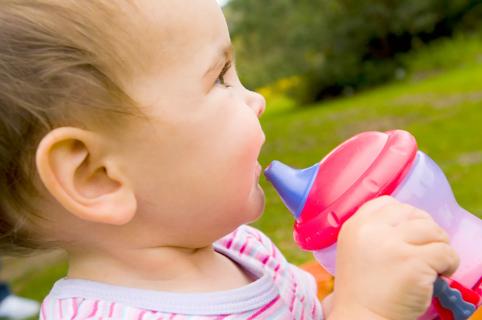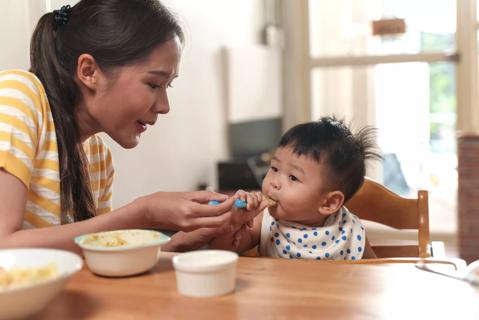Potential issues include choking, tooth decay and ear infections

When you’re an exhausted parent with a demanding little one at home, anything that saves time or offers you a few extra minutes of super dreamy sleep probably seems like an idea worth trying.
Advertisement
Cleveland Clinic is a non-profit academic medical center. Advertising on our site helps support our mission. We do not endorse non-Cleveland Clinic products or services. Policy
That explains the temptation to leave a bottle of formula or breast milk in your child’s crib. If they wake up hungry, they can just feed themselves. Self-service, right?
Well, you might want to rethink that plan.
A baby’s access to a bottle in bed creates a laundry list of potential problems — and we’re not talking about cleaning spills on bedding or PJs. There are health concerns to consider, as pediatrician Heidi Szugye, DO, IBCLC explains.
So, how much harm can a bottle of formula or milk really do to your child if they grab it for a late-night feeding? Far more than you’d think, says Dr. Szugye.
Let’s look at five reasons why bottles don’t belong in your baby’s bed.
Small airways in young children make them prone to choking or gagging while drinking — especially if the fluid flows out faster than they can swallow.
If you’re holding your baby and feeding them, you can prop them up and take corrective action to help clear their airway if they start choking or coughing, notes Dr. Szugye. (A few gentle pats on the back usually help.)
But if your baby is alone and lying on their back in bed, they may be unable to adjust on their own. That may lead to them breathing in the fluid and choking.
Advertisement
This is also the reason why you shouldn’t leave an infant alone with a propped-up bottle.
On a side note, adding rice cereal to a bottle makes the fluid thicker and increases the risk of choking. The American Academy of Pediatrics recommends against using rice cereal in a bottle as a sleep aid.
If your infant dozes off in their crib while sucking on a bottle, odds are that they nod off with some formula or milk still in their mouth. Whatever they were drinking may pool around any just-emerged teeth.
That’s bad news for those little pearly whites: “There’s a higher risk for tooth decay if a baby falls asleep with formula, milk or some other drink containing sugar in their mouth,” says Dr. Szugye.
The reason? Sugary fluids that linger in the mouth break down into an acid that attacks tooth enamel, leading to deterioration. (Learn more about caring for your baby’s teeth.)
Babies who drink from a bottle in bed may also be more at risk of getting an ear infection. It’s a byproduct of our anatomy — specifically, the eustachian tube connecting your middle ear to the back of your throat.
If a baby drinks while lying flat on their back, the fluid may flow into their eustachian tubes and to their middle ear to cause an infection.
Research shows a link between bottle feeding in bed and the development of wheezing and asthma in early childhood. (The study focused on children with a family history of asthma or allergies.)
Making a bottle part of your child’s in-bed sleep routine can strengthen their feed-to-sleep association. You’re basically turning a bottle into a comfort object that becomes required for ZZZs.
That dependency can make your baby’s eventual night weaning and sleep training more difficult. “It’s best to just not to start the habit of leaving a bottle in the crib,” advises Dr. Szugye.
So, what should you do to make sure your baby’s belly isn’t grumbling at bedtime? Dr. Szugye recommends feeding them about 15 minutes before they go to sleep as part of their bedtime routine.
“Keep them upright after they feed before putting them down on a flat surface to sleep,” she says. “That’ll get you past the time when they might spit up and avoid exacerbating any reflux.”
And when it comes to providing them a grab-and-snack option for later, the recommendations are clear: “You never want to put a bottle in the baby’s bed with them,” she stresses.
To hear more from Dr. Szugye on this topic, listen to the Health Essentials Podcast episode, “Babies and Bedtime.” New episodes of the Health Essentials Podcast are available every Wednesday.
Advertisement
Learn more about our editorial process.
Advertisement

In babies under 12 months old, cow’s milk has been associated with gastrointestinal bleeding

No juice until your child is 1 year old — and even then, they shouldn’t have much, if any

Ultimately, the choice depends on what works best for you and your baby, but it’s also important to be aware of the pros and cons of both

Ideally, you want your toddler to be drinking from a ‘big kid cup’ by age 2

Letting your baby feed themself foods the whole family enjoys has its benefits — but stick to softer foods and follow safe-eating guidelines

Levels are generally low, but there are ways to minimize potential health risks

Slowly introducing cow’s milk (or soy milk) can help your child make the change

In babies under 12 months, honey may cause a serious illness called infant botulism

Wearing a scarf, adjusting your outdoor activities and following your asthma treatment plan can help limit breathing problems

Your diet in the weeks, days and hours ahead of your race can power you to the finish line

When someone guilt trips you, they’re using emotionally manipulative behavior to try to get you to act a certain way